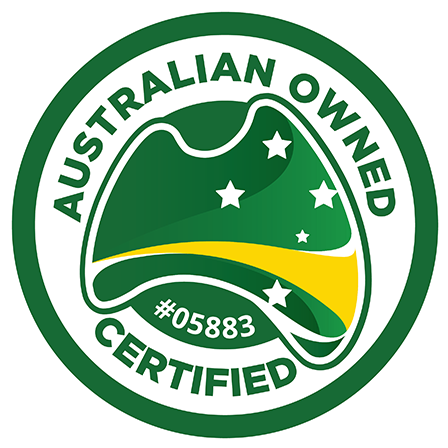If you’ve recently launched your website and are eager to enhance your organic search results, you’re on the right track. SEO is a powerful marketing tool that allows you to connect with potential customers actively searching for your products or services. However, navigating Google’s complex search ranking algorithm, with its more than 200 variables, can be challenging. The good news is that not all variables carry the same weight, and by focusing on the most impactful ones, you can significantly improve your position in the Search Engine Results Pages (SERPs).
It’s essential to understand that the significance of each variable evolves over time. Google adjusts its algorithm based on user behavior and the perceived enhancement of the user experience. Despite these changes, several key organic SEO ranking aspects have remained crucial for years.
Content
Writing effective web content for SEO requires a blend of quality writing, strategic keyword usage, and a solid grasp of SEO principles. To optimise your content, start by identifying relevant keywords using tools like Google Keyword Planner, SEMrush, or Ahrefs. Prioritise long-tail keywords for specificity and targeted traffic. Craft high-quality, valuable, and informative content that meets your audience’s needs, ensuring it is well-written, easy to read, and error-free. Place keywords strategically in titles, headings, and content, avoiding keyword stuffing to prevent penalties.
Content holds paramount importance for Google, emphasising the relevance of websites in SERP listings. The Hummingbird update enhances Google’s understanding of a website’s content structure and its value to users. Crafting high-quality content with a natural tone is rewarded with higher rankings. Including in-depth tutorials and guides is recommended, and SerpIQ data indicates that longer content, around 2,400 words, tends to perform better in search results.
Backlinks
Backlinks have been a crucial factor for over a decade. The more links your website earns from reputable sources, the more trustworthy it appears to Google. However, avoid generating links from spammy or untrustworthy sites, as this can harm your rankings. While Google may evolve its methods of evaluating websites over time, backlinks remain a strong indicator of relevance and validity. First step is to make sure you are listed on local online directories.
Mobile Optimisation
As more users browse from mobile devices, optimising your website for mobile has become essential. Google is moving towards mobile-first indexing, emphasising the importance of mobile-friendly websites. Ensure your website is fully optimised for mobile, including fast page loading times (aim for two seconds), to maintain its ‘mobile-friendly’ status.
Other Technical Variables
Several technical factors significantly impact SERP rankings, including security (HTTPS), headings, anchor text, and interstitials. SSL encryption is associated with high-ranking websites, so ensure your site is secure. Including H1 or H2 headings in your landing pages’ source code is linked to higher rankings. Factors such as organic backlink anchor text and minimising on-page advertisements and pop-ups can also improve organic search results.
Social Signals
Social signals, encompassing activities like engagement, sharing, and interactions on social media platforms, hold substantial influence over a website’s organic search results. Maintaining an active and engaging presence across social media not only fosters community and brand loyalty but also sends strong signals to search engines about a website’s credibility and relevance. Platforms like Facebook, Twitter, and Instagram provide opportunities for users to share, like, and comment on content, contributing to an enhanced perception of the website’s authority in the online space.
Encouraging social sharing is a strategic move to magnify the impact of social signals. When users share content, it not only expands the content’s reach within social circles but also positively affects its visibility in search engine rankings. Social signals, including engagement metrics and sharing activities, are considered by search engines like Google when assessing a website’s trustworthiness. The interplay between a robust social media presence and SEO creates a synergistic effect, where social signals contribute to improved search rankings, and elevated search visibility, in turn, attracts more social engagement and sharing. Incorporating social signals into your overall SEO strategy is a dynamic approach that enhances your website’s online presence and performance in organic search results.
Local SEO
Local SEO is essential for businesses targeting specific geographic areas, tailoring their online presence to resonate with local audiences. This involves incorporating location-specific information into website content and meta tags, enhancing visibility in local search results. A key step in local SEO is claiming and optimising the Google My Business (GMB) listing. This tool allows businesses to manage vital information like business name, address, phone number, hours, and reviews on Google Maps. Optimising the GMB listing involves providing accurate and comprehensive details, utilising high-quality images, encouraging positive customer reviews, and actively engaging with customer inquiries. Consistency across various online directories further strengthens the business’s credibility and authority locally, maximising its potential to attract nearby customers actively seeking relevant products or services.
On-Page SEO
Optimising meta titles, descriptions, URLs, and header tags is crucial for enhancing on-page SEO. Meta titles provide users with a quick glimpse into a webpage’s content, aiming for relevance and a positive user experience. Crafting meta titles with primary and secondary keywords, limited to 60 characters, ensures clarity and professionalism. Meanwhile, meta descriptions, though not directly impacting rankings, play a pivotal role in search results snippets. These concise summaries, ideally 150-160 characters, contribute to improved click-through rates and increased website traffic, ultimately influencing revenue. Prioritising high-quality, relevant meta titles and descriptions is integral to effective SEO optimisation.
Regular Updates and Maintenance
Regularly update and refresh your content, monitor and fix broken links, and adapt your SEO strategy based on industry trends and algorithm changes.
Google’s search ranking algorithm is in constant flux, necessitating adaptability in SEO strategies. While there are over 200 variables, Google has recently emphasised rich content, quality links, a seamless mobile experience, social signals, local SEO, and on-page SEO. Focusing on these prioritised variables in your SEO efforts will keep you ahead of the competition.



 ABN: 58 196 482 040
ABN: 58 196 482 040